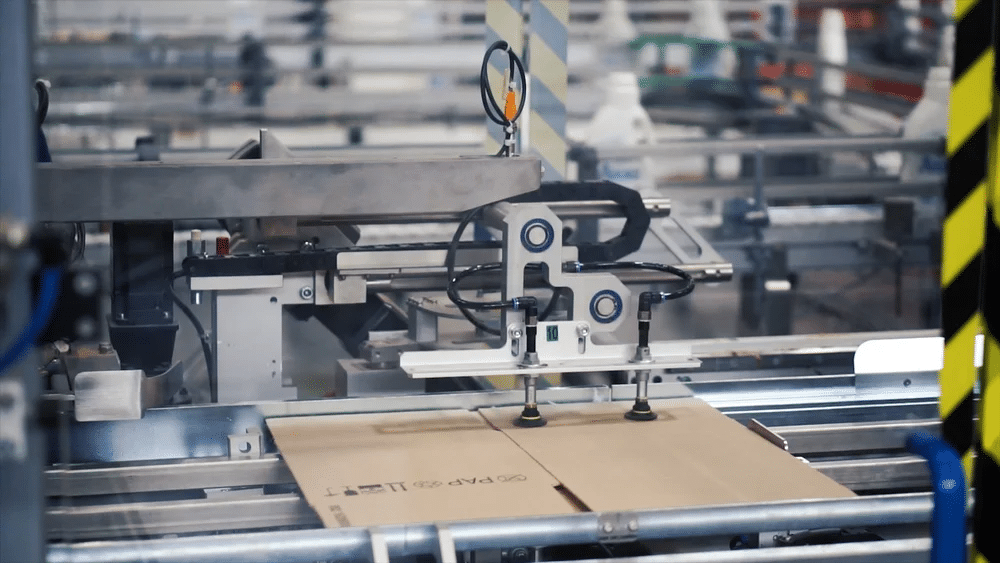In recent years, there has been a significant increase in the use of automation in the packaging automation industry. With the rise of e-commerce and the demand for faster and more efficient packaging processes, companies have turned to automated systems to streamline their operations. However, the next frontier in packaging automation is integrating artificial intelligence (AI) into these systems. This is where Convergence Consulting, a leading consultancy firm in Product Design & Development, with strong skills in the field of the packaging automation industry, medical equipment, wrapping machinery, and precision components.
Artificial intelligence is revolutionizing the way companies approach packaging automation. By analyzing data in real time, AI can identify inefficiencies and improve performance, ultimately leading to cost savings and increased productivity. With AI, packaging automation can become more intelligent, efficient, and responsive to customer demands.
One area where AI can make a significant impact is predictive maintenance. Convergence Consulting notes that the packaging industry has traditionally relied on reactive maintenance, which can lead to downtime and lost productivity. By implementing AI-powered predictive maintenance, packaging companies can proactively identify potential issues before they become major problems. This means that companies can avoid costly downtime and maintain optimal performance.
Artificial intelligence can also improve the accuracy and speed of quality control processes. With machine learning algorithms, AI can identify defects and anomalies in packaging materials and products, leading to better quality control and improved customer satisfaction. Additionally, AI can optimize the packaging process itself by analyzing data on packaging materials, product specifications, and customer preferences to create customized packaging solutions that are tailored to specific products and markets.
Another area where AI can make a significant impact is supply chain management. By analyzing inventory levels, shipping times, and demand patterns, AI can optimize supply chain operations, ensuring that packaging materials and products are available when and where they are needed. This can lead to faster delivery times, lower inventory costs, and improved customer satisfaction.
Convergence Consulting has been at the forefront of these developments, helping packaging companies to integrate AI into their operations. The company provides a range of services, including strategic consulting, process optimization, and technology implementation, all focused on helping companies to leverage AI to improve their packaging automation systems.
One of the key benefits of working with Convergence Consulting is the company’s deep expertise in the packaging automation industry and AI. The firm’s consultants have years of experience working with packaging companies, understanding the unique challenges and opportunities in the industry. Additionally, the company has a team of data scientists and AI experts skilled in developing customized AI solutions for packaging automation.
One example of Convergence Consulting’s work in this area is a recent project with a leading packaging manufacturer in Thailand. The company was experiencing significant downtime due to maintenance issues, resulting in lost productivity and increased costs. Convergence Consulting, working synergistically with a local partner, implemented an AI-powered predictive maintenance solution, which monitored the packaging machinery in real time and alerted operators to potential issues before they became major problems. As a result, the company saw a significant reduction in downtime, leading to increased productivity and cost savings.
To summarize, there are several artificial intelligence (AI) power tools that can help optimize the design of systems, such as packaging automation, medical equipment, wrapping machinery, and precision components. Here are a few examples:
- Generative design software: This AI-powered tool uses algorithms to generate multiple design options based on user-specified criteria. It can help optimize designs for weight, strength, and other factors, which can be especially useful for designing components or machinery.
- Finite element analysis (FEA) software: FEA software uses AI algorithms to simulate how a design will behave under different conditions, such as stress, heat, or vibration. This can help identify potential problems and optimize the design to improve performance and durability.
- Neural networks: Neural networks can be used for tasks such as image recognition, which can help design machinery or components that rely on sensors or cameras for feedback. They can also be used for predictive maintenance, helping to identify potential issues before they become major problems.
- Natural language processing (NLP): NLP can be used to analyze customer feedback, user manuals, or other sources of information to identify common problems or areas for improvement. This can help inform design decisions and prioritize areas for optimization.
Overall, the best AI power tool for optimizing the design of systems will depend on the specific needs and goals of the project. It may be helpful to consult with an AI expert or use a combination of tools to achieve the best results.
In conclusion, the integration of AI into packaging automation has the potential to revolutionize the industry. By analyzing data in real time, AI can identify inefficiencies, improve quality control, optimize the packaging process, and optimize supply chain operations. Convergence Consulting, with its deep expertise in both the packaging industry and AI, is well-positioned to help companies leverage these technologies to improve their operations. With AI-powered packaging automation, companies can become smarter, more efficient, and more responsive to customers.



Leave a Reply